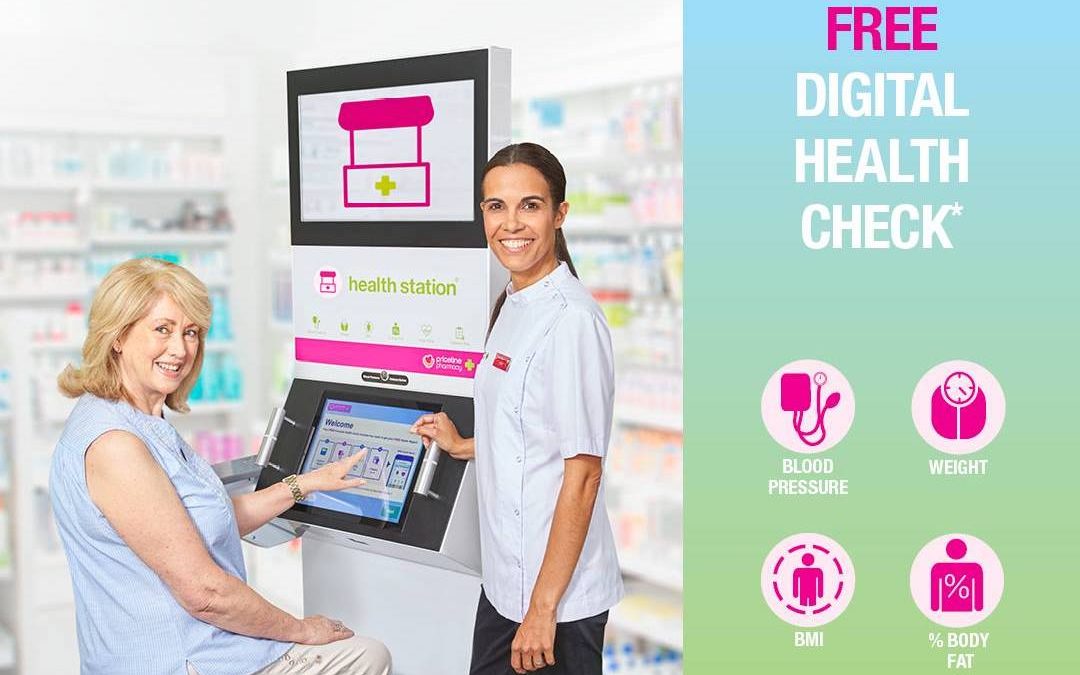19 October 2020
DHCRC Industry Participant SiSU Health has released its first interactive population health and risk profile analysis of its Australian members.
The report found that 12.4 per cent of users had high blood pressure, 56.3 per cent were overweight or obese, 4.7 per cent have diabetes and 25.2 per cent are at higher risk of developing Type 2 diabetes in the next five years. Around 6.6 per cent of users reported high levels of stress.
The report is based on de-identified data from over 1.3 million health checks undertaken by almost 600,000 people between Jan 2018 and August 2020, via 326 mobile health stations located primarily in Priceline pharmacies in each state and Territory across Australia.
“The report gives us a very comprehensive close-to-real-time snapshot of the health of Australians who used these stations,” says Patrick Hannebery, who is SiSU’s Head of Analytics and Insights.
“We were also able to show that there have been non-seasonal spikes in key health risks (hypertension, BMI and smoking) linked to the introduction of COVID-19 lockdowns in March 2020,” he adds.
Mr Hannebery says that SiSU’s analysis also found that members have, on average, gained weight during the COVID-19 lockdowns, an example of how digital health can deliver real-time, longitudinal insights and personal engagement.
He adds this is far more effective than the current population health risk profile measured each four years or so in the National Health Survey where around 20,000 people are interviewed as a representative sample.
User metrics
Mr Hannebery says that SiSU station members have a median age of 34.5, around 54 per cent are female, and 80 per cent of members live in major cities, and the company is working closely with commercial, government, peak health and academic partners to provide access across different socio-economic groups.
The platform focuses on health metrics described by a 40-year long Harvard University study which examines the links between adherence to a healthy lifestyle at mid-life and its association with a longer life expectancy free from major chronic diseases.
The SiSU self-service digital health stations are provide free health checks to participants, who have control over how the data is used and distributed and can delete it at any time. The stations are approved by Australia’s Therapeutics Goods Administration as Class IIa medical devices.
These mobile kiosks can track blood pressure, heart rate, weight, body mass index and percentage of body fat, along with various risks such as cardiovascular and diabetes risks and self-reported levels of stress using clinically validated screening instruments.
The health stations are funded through partnerships, and most people currently access SiSU stations in a Priceline pharmacy, with employees of the Commonwealth Bank also having access in their workplace.
SiSU CEO Dr Noel Duncan reported that one recent study of 67,000 SiSU users found that around 87% of people who used the SiSU Health Station reported that they had never had their blood pressure measured before – and almost 18% of those people then went on to record high blood pressure shortly after as they were tested on the Station.
“SiSU is all about equity of access, the checks are free of charge to the end-user, convenient and fast – and this has led to people coming in for health checks who don’t usually go to see a doctor,” says Mr Hannebery.
“The SiSU stations provide a bridge outside GP clinics and hospitals, giving people tools and information so they can improve and ‘own’ their health,” he says. He adds that, to date, the SiSU Health Platform has delivered more than 465,000 digital calls-to-action to encourage members to visit their GP after recording elevated blood pressure reading and/or obese BMI.
“This report provides the proof and pathway for how consumer-centric digital health platforms can deliver on the SiSU vision, to improve the health of millions of people, one person at a time,” says Mr. Hannebery.
Read the report:



















